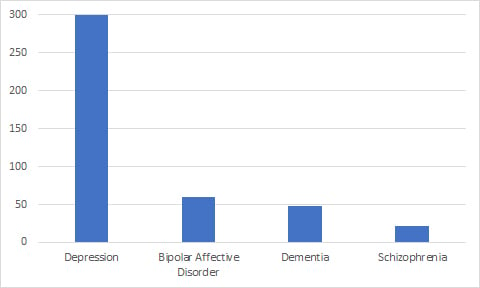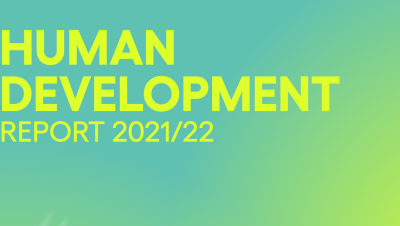Mental health issues are a serious concern, and an area that is enormously underrecognized.
Globally at least 800,000 people commit suicide each year: one suicide every 40 seconds. Suicide is the second leading cause of death among 15–29-year-olds, and for every suicide there are many more attempts each year. But suicide is only one extreme manifestation of mental health issues. Mental and substance use disorders go much wider: they have consistently been shown as the leading causes of years of life lived with disability worldwide. Many mental health issues are not even counted in these statistics, most often because they are not diagnosed.
The World Health Organisation (WHO) defines mental health as, “a state of well-being in which an individual can realize his or her own potential, cope with the normal stresses of life, work productively and make a contribution to the community.” This implies much more than the absence of a diagnosed mental health disorder – it is surprisingly similar to the concept of human development: the expansion of freedoms and capabilities so that everyone can reach his or her full potential.
Consider the girl Jennifer from the United States, a country with very high levels of human development, where conditions are good for successful learning. Nonetheless, as a consequence of childhood trauma, Jennifer has difficulty to concentrate in school. Even though she has access to education, her psychological condition does not allow her to develop her full potential. In the United States, it is estimated that almost half of all adolescents aged 13-18 have suffered from a mental health disorder in their lifetime.
Another example could be Victor from Germany, also a country of very high human development. Victor suffers from depression, and although life expectancy in his country is among the highest in the world, Victor does not enjoy his long life. Due to his psychological condition, he has not been able to go to work every day. A recent study shows that medical leave caused by mental health issues has increased by almost 80 percent in Germany during the last ten years. Absence caused by poor mental health is also longer (on average 25.7 days per case compared to 11.7 days caused by other illnesses).
These two examples show how mental health issues limit human freedom internally in spite of favorable external conditions, such as high life expectancy or access to education and jobs. They also undermine the quality of human development. Therefore, mental health is a fundamental component of human development.
In countries of low human development, more often than not there are other development priorities, and mental health is not given the necessary attention. This is especially complicated in countries that suffer from violent conflict. It is estimated, for example, that at least 20 percent of Rwanda’s population suffers from post-traumatic stress disorder.
At a global level, the challenge in assessing mental health issues is data. Since the WHO’s definition of mental health constitutes a concept that is much wider than the mere freedom of mental illness, numbers of mental disorders are only a weak proxy. Moreover, in many countries the continuing stigma around mental health issues makes individuals reluctant to reveal information and/or seek professional help, even if it is available. In France, for example, there are on average only 120 psychologists/ psychiatrists per million people, compared to 680 dentists. Now consider countries like Mali or South Sudan where there are only 0.3 psychologist/ psychiatrists per million people. In many countries, not all mental health services are fully covered by insurances, which further exacerbates access.
Worldwide about half a billion people are diagnosed with one of the mental health diseases shown in Figure 1. (Some diseases may be overlapping.)

Another proxy for mental illness is substance abuse. The United Nations Office on Drugs and Crime (UNODC) estimates that 1 in 20 adults, or a quarter of a billion people between the ages of 15 and 64 years, used at least one drug in 2014. The harmful use of alcohol and tobacco is much more common because these substances are legal and socially accepted in most countries.
Considering the prevalence of mental illness on the one hand, and the importance of mental health for human development on the other, the promotion of mental health through public policy becomes pressing (SDG targets 3.5 and 3.6).
An important step towards mental health is to fully integrate therapies into general health services to make treatments accessible to everyone and abolish stigma. Another way is to promote mental health in schools – through therapeutic workshops, yoga and meditation – given that a healthy childhood is the foundation for healthy and resilient societies.
Today, on World Mental Health Day, let’s explore new ways towards better mental health around the world.
The HDialogue blog is a platform for debate and discussion. Posts reflect the views of respective authors in their individual capacities and not the views of UNDP/HDRO.
HDRO encourages reflections on the HDialogue contributions. The office posts comments that support a constructive dialogue on policy options for advancing human development and are formulated respectful of other, potentially differing views. The office reserves the right to contain contributions that appear divisive.
Photo: Lynn Friedman


